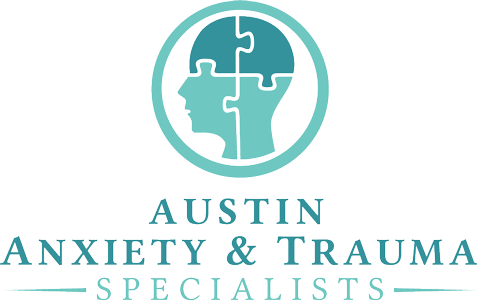When we’ve experienced or witnessed something awful, our body and minds often crave rest. The physiological toll stress takes on our bodies can leave us feeling like we’ve been lifting tons upon tons all day. Your body may feel sore and weak, your mind just can’t seem to focus, and your emotional capacity is well beyond its limit.
But what happens when you can’t give your body rest?
For some, post-traumatic stress disorder (PTSD) regularly affects their ability to sleep through vivid dreams or nightmares. PTSD is a mental health condition that can affect anyone who has experienced or witnessed a traumatic event. While commonly linked to war veterans on the media, PTSD can also occur when someone has experienced or witnessed a life-threatening event like a fatal accident, sexual assault, natural disaster, and war.
Some common signs of PTSD include:
- Recurrent, undesired memories of the traumatic event
- Avoiding talk, places, or people that bring up those memories
- Feeling irritable and agitated
- A sense of hopelessness
- Trouble sleeping
Read: 12 Grounding Techniques for Anxiety and PTSD
Why do people with PTSD have trouble sleeping?
When someone experiences a frightening event, their stress response is activated. Fight, flight or fawn activates and the body prepares to respond to the threat. Pupils dilate and heart rate increases as the body is flooded with stress hormones. For someone without PTSD, this state is temporary. Once the threat or event passes, so will the stress response. Like a switch, it turns off. Though anxiety can reside longer, it too passes with time.
For someone with PTSD, that switch is often constantly on. This can lead to chronic hyperarousal—when the body is continuously flooded with stress hormones. Muscles may remain tense throughout the day or night, heart rate remains high and the mind can feel as if danger is around every corner. This leads to hypervigilance, a heightened startle reaction, irritability, and difficulty concentrating and sleeping.
Falling asleep can already prove a challenge in that state of hypervigilance or hyperarousal, but for many who struggle with PTSD, sleep does not always offer the rest they so desperately need. Like with flashbacks, PTSD can also manifest in nightmares and dreams. While flashbacks are intrusive, dissociative events that make the person feel they’re reliving the trauma, PTSD dreams and nightmares occur during sleep and do not activate the body’s defense mechanisms. During flashbacks, the mind believes the events and threats are real, but during a PTSD dream, the mind knows it’s not.
Some experts believe these dreams happen when the person tries to make sense of their feelings—anxiety and guilt—from their traumatic experience. Because these dreams don’t flood the body with stress the way a trauma trigger can in a state of wake, PTSD dreams can serve as a way for the mind to process trauma safely. However, that doesn’t mean they’re pleasant.
Upon waking, the person can still experience an onslaught of difficult emotions as with any disturbing and unpleasant dream or horrible nightmare, only elements of the dream really did happen. While the body may be trying to cope and understand the traumatic experience, someone with PTSD may be left reeling and struck by distress. They may even struggle going back to sleep.
Read: 10 Signs You’re Living with Unresolved Trauma & How to Evict it
How can I cope with PTSD dreams or nightmares?
These dreams and nightmares are understandably distressing, but there are ways to manage them and find relief. Various forms of PTSD treatment can address more than just dreams, as these are symptoms of a bigger cause.
PTSD treatment can include a combination of different trauma therapies and at times, medication. Some effective therapies used to treat PTSD include Cognitive Behavior Therapy (CBT) and Eye Movement Desensitization and Reprocessing (EMDR) therapy. EMDR is a well-researched method that focuses on how the traumatic memory and the emotions that go with it are stored in the brain. The goal of EMDR for PTSD treatment is to remember without the pain, anxiety and distress and no longer relive the traumatic event.
Other than therapeutic treatments, you can also help your body and mind cope for better sleep with:
- Therapeutic video games: Many trauma survivors or those living with depression or anxiety have found relief from playing video games. Some enjoy the routines and predictability of “cozy games” like Stardew Valley and Animal Crossing. Others use more aggressive video games as a safe way to experience similar events to their trauma in a controlled, safe environment. A small study found war veterans benefitted from shooter video games as a form of exposure therapy.
- Journaling: Journaling can give us an outlet for our emotions and thoughts, but it can also be used for Image Rehearsal Therapy (IRT), a form of CBT therapy where you rewrite nightmares in your journal as positive stories that you can re-read to help replace the memory of the prior nightmare.
- Changing sleep routines: If you don’t really have a sleep routine, you may benefit from creating a simple routine you can follow every night to help your body know it is safe to relax and rest. If you already have a few steps you do before bed, your mind may benefit from switching the routine up a bit and adding elements like journaling, reading, and stretching.
Read: Self-Care Strategies For Trauma Relief
Good sleep hygiene can help
When we are suffering from sleep deprivation, our bodies are more likely to experience rapid-eye movement (REM) rebound, which may lead to more nightmares and vivid dreams than usual as REM is the phase in which dreams happen.
To avoid sleep deprivation and an increase to your dreams or nightmares, it’s important to maintain good sleep hygiene. Here are a few things you can do to make it easier for your body to get the sleep it deserves:
- Keep the room cool and dark. If the dark creates anxiety, try a nightlight.
If you don’t like the quiet, create a calm environment with white noise or ASMR.
- Avoid watching TV or using your phone on the bed.
- Turn off any electronic devices at least an hour before bed.
- Make your bed a safe space meant only for sleep and intimacy.
- Don’t be afraid to surround yourself with comfortable pillows, soft blankets, or even a soft plush toy, if it makes you feel more at ease. It’s all about your comfort.
- Try to limit large and greasy meals close to bedtime.
- Avoid caffeine and alcohol.
- Sleep in a room that feels safe, even if that isn’t necessarily your bedroom.
Read: How to Break the Cycle of Revenge Bedtime Procrastination (in 5 Steps)
If you feel that you’re experiencing any of these acute stress symptoms or struggle getting a good night’s rest due to vivid dreams or nightmares, consider speaking to someone. You deserve relief from your past and dreams that haunt your days. Our trauma specialists at Austin Anxiety and Trauma Specialists are trained to provide CBT and EMDR therapy to help you feel relief that lasts. Schedule your first session with us today to get started on your healing journey. It can get better. We can help.






